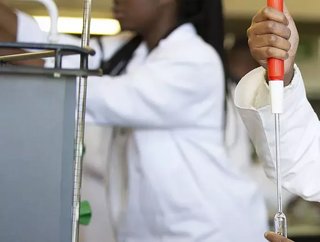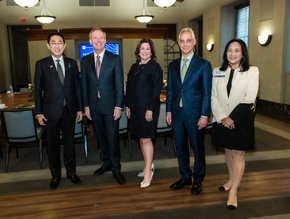Siemens: Female engineers are changing the world

Speaking at the annual conference of the Girls’ Schools Association (GSA), Carl Ennis, the UK CEO of Siemens, says that girls need good role models to understand the variety, range and scope of jobs and careers available.
Siemens, the multinational technology and engineering company, revealed that only 12% of UK engineers are women. 51% of the working age population are female. Add science and technology, and women account for just 24% of that workforce.
Male dominated industries
Ennis states that “when you ask a student what a scientist or an engineer looks like, they’ll more often than not draw a male stick person with a lab coat on, or fixing your boiler. Girls who have been encouraged, supported and nurtured through school are sent into a world of work that, in some instances, is the binary opposite of what they’d hoped for. In STEM subjects, this can mean male overalls, male safety shoes, male goggles and male work stations. Clothing that’s too big, too cumbersome and, over time, agonising and dangerous."
Ennis went on to say: ”We cannot be allowed to open our doors to 50% of the population having guided them through the school system, only to leave them disenfranchised and brow-beaten at the workplace they’re presented with. We need diversity of thought more than ever. And to create the right conditions for innovation and equity to flourish. At the moment there is a disproportionate rate at which women leave a STEM career within the first five years. At Siemens, we have created a barrierless place to work, but there is more to be done across the UK. Diversity leads to better business decisions. One pivotal point for increasing gender diversity is early life choices.”
Siemens launched the SeeMe programme In 2016 , which works in conjunction with the GSA, Zinc Media and Fran Scott from CBBC. It supports teacher training resources, spotlights STEM female role models within the industry, identifies the range and scope of careers available, and challenges any stereotypes or barriers girls between 11 and 14 believe they may encounter. It also highlights how diverse teams are more likely to reach scientific breakthroughs and innovations.
GSA schools host the events and invite girls from neighbouring state schools to attend. Siemens is currently working with Harrogate Ladies’ College to expand these events, supported by alumna Maisie Axon, part of Siemens’ Mobility Team working on major UK rail projects.
Siemens set themselves a goal of having 20% female apprenticeships by 2020, which they achieved.
“The GSA partnership is having a real impact on girls’ perceptions of working in science and engineering, with 70% of students attending the SeeMe shows feeling inspired to find out more about a career in STEM, 65% imagining themselves in a STEM career, and 65% thinking they knew more about the range of different careers available,” said Ennis.
Attended by 4,000 children at more than 100 schools, SeeMe event has toured the UK as a physical event and at #Virtual SeeMe, providing a montage of engineers and technology experts with diversity of thought and experience from around the world.
Ennis went on to say that the UK needs 203,000 people each year with Level 3+ engineering skills to meet demand.
“It is vital our education programme continues to highlight role models from a diverse variety of identities and backgrounds so that young people see and recognise people like themselves in exciting and challenging careers. It’s hard to see yourself as an engineer or senior leader if most of your potential role models are not like you. There is an issue with getting girls excited by engineering subjects at school and a real lack of girls taking STEM subjects. If we lose them in their early life choices, then they will never be our technical experts, or leaders of the future. Role models can be inspirational, enhance a sense of belonging and identity in STEM fields, and can reduce self-stereotyping,” Ennis continued.
Ennis added that the world is placing greater emphasis on emotional intelligence.
"Being able to regulate your emotions is becoming one of the most highly sought-after skills in business today," he said.






